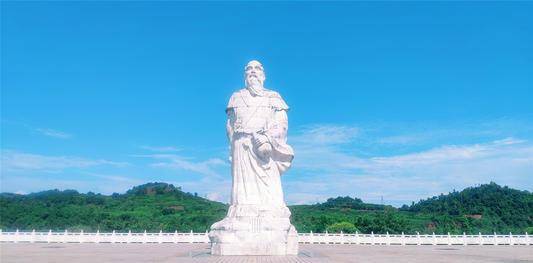In the misty annals of Chinese mythology, few figures captivate like Peng Zu, the legendary “Longevity Patriarch” said to have lived over 800 years. While his age stretches credulity, Peng Zu’s story embodies ancient China’s quest for harmony between body, breath, and desire—a philosophy that resonates across millennia.
Born during the mythical reign of Emperor Yao (c. 24th century BCE), Peng Zu allegedly survived 49 wives and multiple dynasties through mastery of qigong daoyin (气功导引), the art of guiding life energy through breath and movement. Ancient texts describe him practicing “bear hangs and bird stretches” at dawn—early forms of therapeutic exercise that synchronized deep diaphragmatic breathing with flowing motions to “unblock meridians and nourish organs.” Modern scholars suggest these techniques likely formed a primitive health regimen combining meditation, calisthenics, and circulatory massage.
More controversially, Peng Zu perfected fangzhong shu (房中术), the “bedchamber arts.” Far from mere eroticism, this Taoist sexual practice emphasized controlled intimacy as vital energy cultivation. The 2nd-century BCE Peng Zu Classic advises: “Union resembles fire near oil—skill preserves the flame without exhausting the fuel.” Practitioners learned to balance arousal and restraint, believing careful management of seminal essence (jing) could rejuvenate tissues and delay aging. Some medical texts credit these methods with regulating hormones and reducing stress-related inflammation.
Peng Zu’s downfall came when King Mu of Zhou (10th century BCE) demanded his longevity secrets. The sage warned that true health required “nourishing spirit before nourishing form,” but the hedonistic ruler sought only quick fixes. Disillusioned, Peng Zu vanished into the mountains, leaving behind a cryptic scroll: “Those who chase immortality find death; those who tend the inner garden find timeless spring.”
To Western readers, Peng Zu’s 800-year lifespan symbolizes eternal truths: sustainable wellness requires patience, moderation, and respect for the body’s natural rhythms. His legacy endures in Traditional Chinese Medicine’s holistic principles and modern mindfulness practices—proof that ancient “magic” often contains scientific wisdom waiting to be rediscovered.

✅ Instantly unlock: Shaolin Ba Duan Jin Teaching
🎯 3 friends = Chinese Medicine Acupressure
🔥 5 friends = Bedroom Power Boost Manual
📥 Claim Your Free Ebook Now👉 All downloads are available in Happy Land
📚 More details about the three books are available on our blog.

